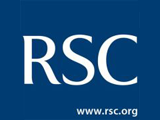
Following an exceedingly successful pilot in the UK, the Royal Society of Chemistry (RSC) is now rolling out its ‘Gold for Gold’ open access initiative worldwide.
‘Gold for Gold’ was launched in July this year, as an innovative experiment to support British researchers as they begin the funder led transition to Gold Open Access.
UK research institutions who are ‘RSC Gold’ customers were provided with credits equal in value to their subscription payment to make their papers available via Open Science – the RSC’s Gold Open Access option.
The RSC took this action to enable researchers, who are being asked to publish Open Access but who don’t have the funding yet to pay for it directly, to meet their funders’ requirements.
This ‘Gold for Gold’ initiative equated to the RSC donating over £1 million worth of Gold Open Access ‘Article Publication Fees’ (APCs) to the UK research community during 2012.
The response from the community has been excellent, with the number of universities from across the UK signing up to ‘Gold for Gold’ approaching sixty.
Following incredibly positive feedback from UK researchers – and responding to enquiries from the US, Japan, Australia, Denmark, and many other nations – the RSC is now rolling ‘Gold for Gold’ out across the world in 2013.
This global initiative will credit universities worldwide with over £5 million worth of voucher codes to make their research papers available through the RSC’s Open Access option – at no cost to researchers.
Announcing the extension of ‘Gold for Gold’, RSC Publishing Managing Director, Dr James Milne said: “We launched ‘Gold for Gold’ as a pilot in the UK in direct response to the UK’s funder-led move towards Gold Open Access publishing.
“We wanted to see if this sort of initiative would be helpful to the community, and we immediately realised it was.
“The pilot has allowed us to improve our systems and processes, to streamline the activity for authors and to make Open Access a simple procedure for all those involved.”
Dr Milne added: “We are delighted to see researchers utilising these free Open Access credits across the breadth of our journals portfolio, including papers accepted for publication in our high impact flagship journals such as Chemical Science and Chemical Communications.”
For more information on ‘Gold for Gold’ and the RSC’s policy on Open Access, please visit www.rsc.org/Publishing/librarians/GoldforGold.asp
























